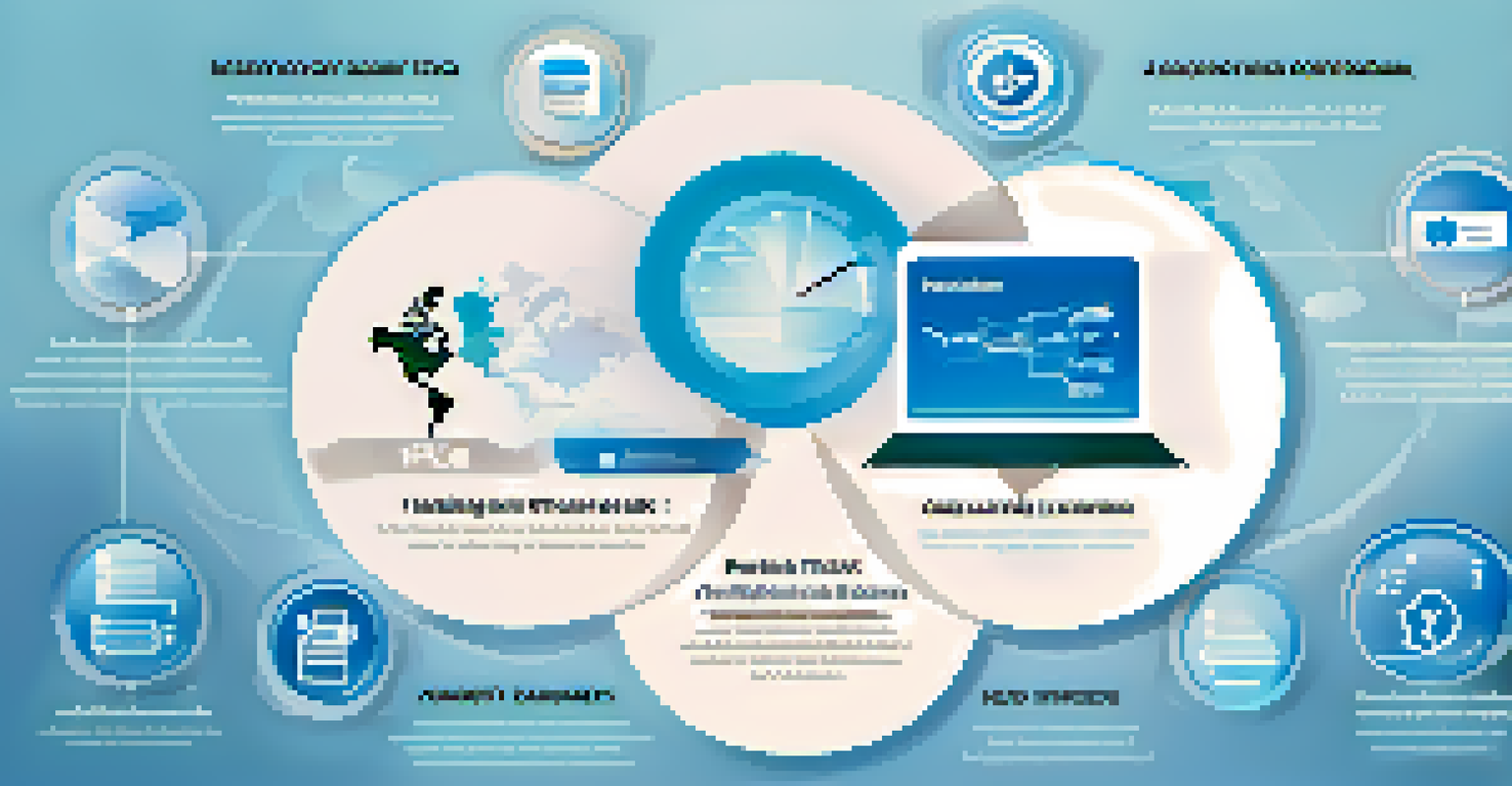The Impact of Online Testing Platforms on Student Learning

Introduction to Online Testing Platforms and Their Rise
Online testing platforms have become a significant part of the educational landscape. Their rise can be attributed to advancements in technology and the growing need for flexible assessment methods. Students and educators alike are embracing these digital tools for a range of reasons, from convenience to accessibility.
The beautiful thing about learning is that no one can take it away from you.
These platforms offer a way for students to take tests from the comfort of their homes or any location with internet access. This flexibility is particularly beneficial for non-traditional students or those with busy schedules. The ability to take assessments at one's own pace can significantly reduce anxiety and improve performance.
Moreover, online testing platforms often incorporate features that enhance the testing experience, such as instant feedback and interactive question formats. This immediate response helps students identify areas for improvement right away, fostering a more engaging learning process.
Benefits of Online Testing for Student Learning
One of the most notable benefits of online testing platforms is the personalized learning experience they provide. Students can often tailor their study and testing strategies based on their unique learning styles, which can lead to better retention of information. This kind of customization can be a game-changer for many learners.

Additionally, online tests frequently include a variety of question types, such as multiple-choice, essays, and interactive simulations. This variety not only keeps students engaged but also allows for a more comprehensive assessment of their knowledge and skills. It's like having a buffet of testing options that cater to different strengths.
Benefits of Online Testing
Online testing platforms provide personalized learning experiences and a variety of question types, enhancing engagement and retention.
Furthermore, the data collected from online assessments can be analyzed to track student progress over time. Educators can use this information to adjust their teaching methods and provide targeted support where it's needed most, creating a more effective learning environment.
Challenges Faced by Students with Online Testing
While online testing offers many advantages, it also presents challenges that can't be overlooked. Technical issues, such as connectivity problems or software glitches, can disrupt the testing experience and lead to frustration. For some students, these interruptions can impact their performance and overall confidence.
Education is the most powerful weapon which you can use to change the world.
Moreover, the shift to online assessments may not accommodate all learning styles equally. Some students may thrive in traditional testing environments where they can physically write their responses, while others may struggle in a digital format. It's essential for educators to recognize these differences and provide support accordingly.
Lastly, the potential for academic dishonesty increases with online assessments. Students may be tempted to look up answers or collaborate inappropriately, which can undermine the integrity of the testing process. Institutions must implement robust measures to maintain trust and authenticity in online assessments.
The Role of Educators in Online Assessments
Educators play a crucial role in the successful implementation of online testing platforms. Their responsibility goes beyond simply administering tests; they must also understand how to leverage these tools to enhance student learning. This includes being familiar with the technology and its functionalities.
Additionally, teachers need to provide guidance on best practices for online assessments, helping students navigate the digital landscape. By offering tutorials or resources, educators can ensure that all students feel prepared and confident when taking online tests. A supportive approach can make a world of difference.
Challenges of Digital Assessments
Technical issues, varying learning styles, and potential for academic dishonesty present significant challenges for students in online testing.
Moreover, educators should be proactive in addressing the challenges that arise from online testing. This may involve advocating for better technology resources or providing alternative assessment options for students who may struggle with online formats. A collaborative effort can lead to a more inclusive learning environment.
The Future of Online Testing Platforms
As technology continues to evolve, so too will online testing platforms. Innovations such as artificial intelligence and machine learning are set to revolutionize how assessments are designed and administered. This could lead to more adaptive testing experiences that adjust in real-time based on a student’s performance.
Furthermore, the integration of gamification in online assessments may enhance student engagement and motivation. Imagine taking a test that feels more like a game, with rewards and challenges that encourage learning. This approach could transform the perception of assessments from a dreaded task to an exciting opportunity.
However, with these advancements come ethical considerations about data privacy and security. As online assessments collect vast amounts of student data, it’s imperative that institutions prioritize safeguarding this information. Balancing innovation with responsibility will be key to the future of online testing.
Comparing Online Testing with Traditional Methods
When comparing online testing to traditional methods, several key differences emerge. Traditional testing often relies on paper-based assessments, which can be time-consuming to administer and grade. In contrast, online testing platforms offer immediate grading and feedback, allowing for a more efficient process.
Additionally, online tests can easily accommodate various formats and question types, offering a broader range of assessment options. Traditional tests, however, may limit students to a single format, potentially restricting their ability to fully express their understanding. This flexibility in online testing can lead to more accurate representations of student knowledge.
Educators' Role in Assessments
Educators are crucial in guiding students through online testing, ensuring they are prepared and addressing any challenges that arise.
That said, traditional testing environments may provide a sense of structure that some students find beneficial. The in-person setting can help minimize distractions and create an atmosphere conducive to focus. Recognizing the strengths and weaknesses of both approaches can help educators design assessments that best serve their students.
Conclusion: Embracing Change in Education
The impact of online testing platforms on student learning is profound and multifaceted. As education continues to adapt to the digital age, these platforms offer valuable tools for assessment and learning enhancement. However, it’s essential to approach this transition thoughtfully, considering both the benefits and challenges involved.
By embracing technology while also prioritizing student needs, educators can foster an environment that supports growth and success. This balance will not only improve the testing experience but also contribute to overall student achievement. After all, education is about nurturing potential, and online testing can play a vital role.

In conclusion, the future of education is bright with the integration of online testing platforms. With ongoing collaboration between educators, students, and technology providers, we can create a learning landscape that thrives on innovation, inclusivity, and effective assessment strategies.